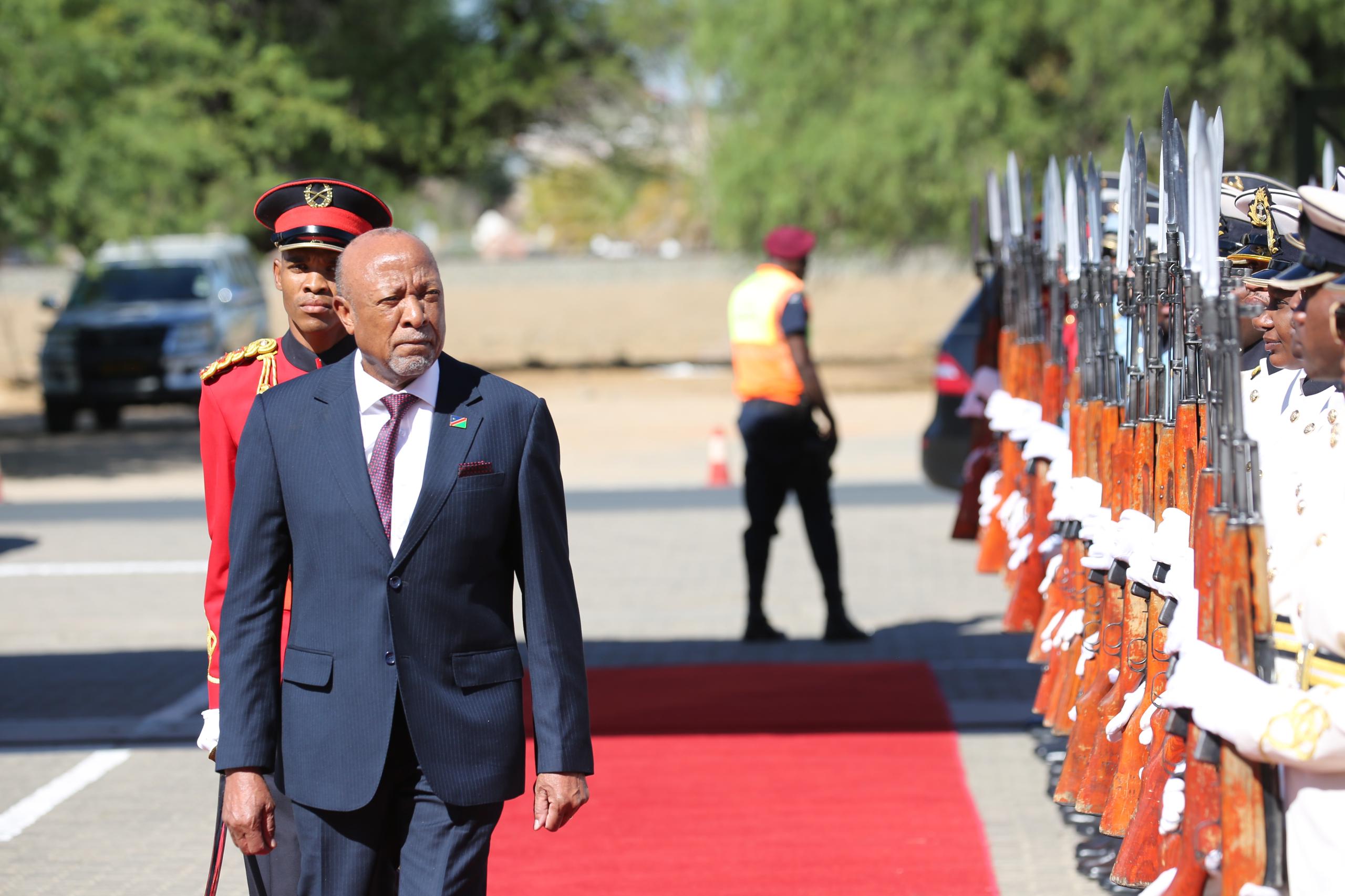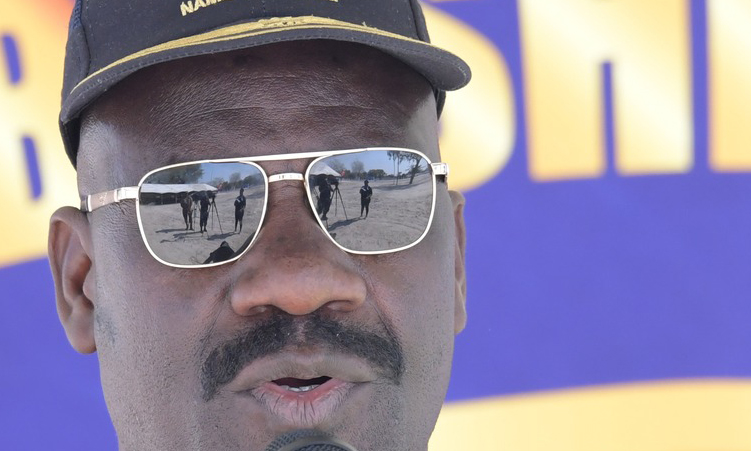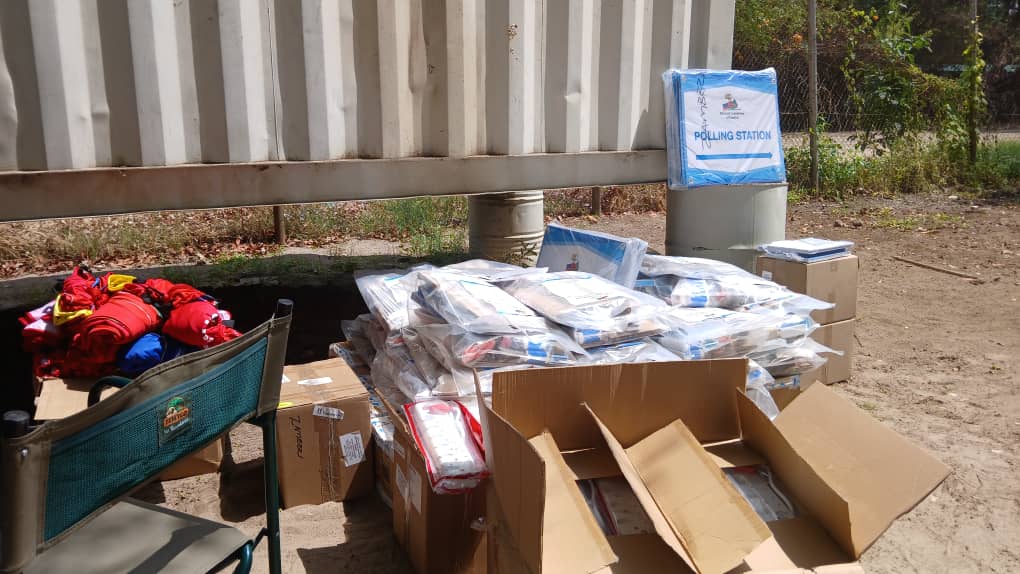… man who saved dumped baby says he is not allowed to adopt because he is poor
“I CRIED when I heard I couldn’t adopt her.”
Abisai Sheetekela says he was left confused when he was denied the right to adopt a baby he found dumped in a bush at Khomasdal in Windhoek last year.
He claims government social workers told him he cannot adopt the baby because he is a single, unemployed man.
The Namibian at the time reported that Sheetekela (27) found the baby lying face down with three fingers missing and her umbilical cord still attached.
He took the crying baby into his arms and named her ‘Miracle’.
Ten months later, Sheetekela says social workers at the Ministry of Gender Equality, Poverty Eradication and Social Welfare are refusing to tell him where baby Miracle is.
In October last year, Sheetekela says he went to visit baby Miracle at the Windhoek Central Hospital as usual, only to be told she was taken to an orphanage.
“I would always visit her whenever I got the chance to ensure she was well taken care of and protected,” he recently told The Namibian.
Ministry spokesperson Lukas Haufiku responded late yesterday after several attempts via calls and messages to reach him since Wednesday. He said the ministry will never turn away an adoptive parent who meets the requirements. He did not elaborate.
Social welfare minister Doreen Sioka did not respond to calls.

‘TOO POOR TO ADOPT?’
Sheetekela, a student at the Windhoek Vocational Training Centre, lives with his girlfriend and daughter (3) at Eros. His girlfriend is an employed nurse.
He said he was also told that the authorities changed the baby’s name from ‘Miracle’ to ‘Hope’.
“Why did they not allow her to at least keep the name? It really broke my heart,” he said.
He said after trying so hard to unsuccessfully adopt the baby, he was forced to give up.
“A social worker said my name did not appear as a guardian of baby Miracle. I felt betrayed, confused and really stupid at the same time,” he said.
Sheetekela said social workers told him he was not supposed to pick up the baby the way he did, saying it was a “crime” and unsafe.
ADOPTION AND THE LAW
Adoptions in Namibia are covered under the Child Care & Protection Act 3 of 2015, which introduces the concept of the best interests of the child as the governing principle in adoptions, the Legal Assistance Centre (LAC) says.
Yolande Engelbrecht the LAC, says any person who meets the legal requirements can adopt a child through the social welfare ministry.
This includes spouses in a marriage acting jointly, a step-parent (married to the child’s biological parent), a widow, widower, and divorced or single individuals.
Engelbrecht says the adoptive parent should be at least 25 years old, unless they can motivate an exception.
She says the applicant should be a resident of Namibia, and fit to undertake parental responsibilities.
“Applicants must complete an application to be a prospective adoptive parent,” she says.
She says all adopted children have the right to access information about the identity of their birth parents when they reach the age of majority.
Engelbrecht says an assessment and decision by a social worker must be made within six months if an applicant provided the necessary documentation on time.
She says a child is eligible for adoption only if he or she is listed on the Register of Adoptable Children and Prospective Adoptive Parents (Racap) at the ministry.
The Racap lists all prospective adoptive parents and children to be adopted
“Only those who are listed on the Racap may apply to adopt a particular child,” she says.
Once an adoption takes place, an individual who wants to apply to adopt an additional child must reapply for Racap listing.
Engelbrecht says if an applicant like Sheetekela is not satisfied with the outcome of the process, they could ask the High Court to review the decision.
‘UNCONSTITUTIONAL’
Meanwhile, referring to Sheetekela’s case, human rights lawyer Norman Tjombe says it was unfortunate that the authorities would take such a prohibitive position on the adoption of a needy child by a poor, but seemingly loving person.
“Here we have poor parents, who are rich in love and want to take care of a child who was abandoned by her parents, and the authorities do not want that parent to adopt the child,” he says.
“No doubt such an attitude is unconstitutional and in violation of the rights of the child,” Tjombe says.
The Namibian reached out to the Ruach Elohim Foundation, which was started in 2018 at Swakopmund to take care of abandoned babies.
Founder Ronel Peters says the foundation has a baby-saver box installed in the boundary wall of her home, “where mothers can safely leave their babies instead of leaving them somewhere unsafe”.
Peters said her foundation only acts as a caretaker that the ministry contacts if one of the children in her care has been selected for adoption by one of the adoptive parents in the register.
Stay informed with The Namibian – your source for credible journalism. Get in-depth reporting and opinions for
only N$85 a month. Invest in journalism, invest in democracy –
Subscribe Now!






